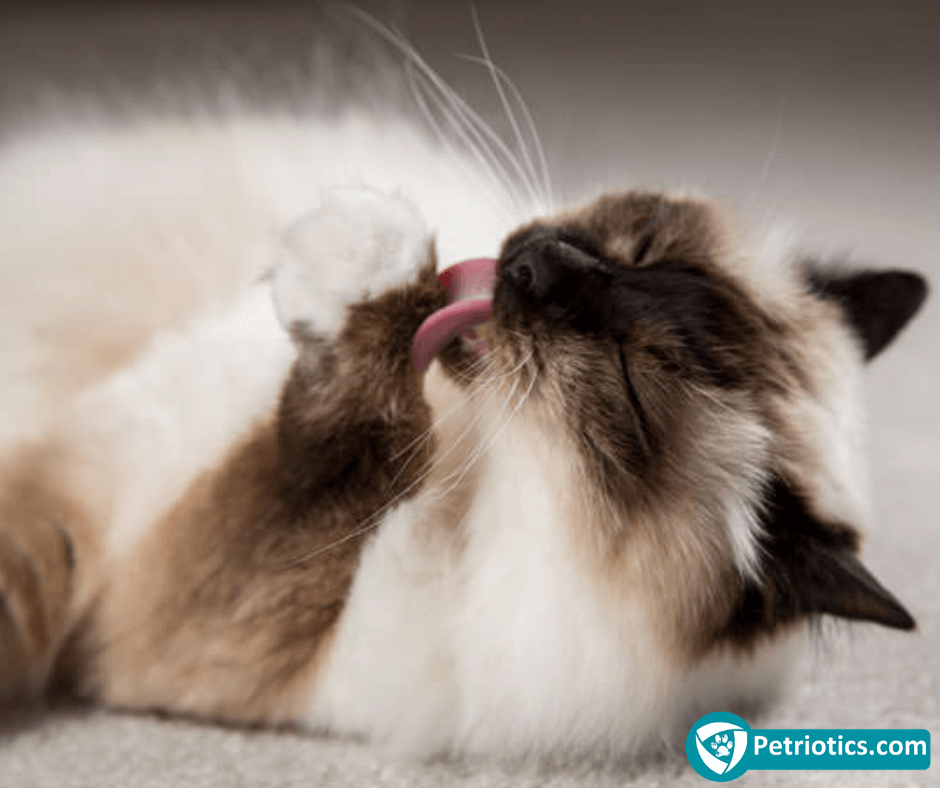
How To Prevent Hairballs In Cats
Every cat guardian is familiar with the weird noise their cat makes every couple of weeks, resulting in a compact hairball being choked onto the floor. Even though cat parents generally get used to this after cleaning up a few, they should how hairballs form, how to prevent them from developing as frequently, and the complications that can arise.
Unlike most dogs that take a lick or two at their paws and consider that they have groomed enough, cats have an elaborate beauty routine. Even tiny kittens will start grooming at a very early age and this continues throughout the life of the cat.
 It would be completely unrealistic to suppose that you can prevent your cat from swallowing hair at all, but there are some things that you can do to minimize hairball problems:
It would be completely unrealistic to suppose that you can prevent your cat from swallowing hair at all, but there are some things that you can do to minimize hairball problems:
Why do hairballs form?
The tongue of a cat is covered with little hooks which pick up dead and loose hairs when the cat licks itself. Cats spend a considerable amount of time during the day cleaning, so they collect a lot of hair during one day that they end up swallowing. Most of the swallowed hair passes harmlessly through the stomach and intestines and is later deposited in the litter box. However, some hair remains and will develop over time into a hairball. Don’t worry: Most hairballs cause no problems at all for your cat. Unfortunately though, sometimes a hairball blockage can occur in the stomach or intestines – and at times a mega-hairball will form in the stomach, taking up the entire space of the organ. There are clues that will tell you when your feline friend may be constipated with a hairball.Hairball symptoms
- Your cat may have diarrhea as the intestinal irritation from the hairball causes food to pass too quickly through the system.
- Cats with blockage have no energy and will simply lie around.
- If your cat attempts to vomit but is unable to bring anything up, the hairball may be too large to expel in the normal way.
- Your cat has no appetite.
- A large hairball can press also against the lungs, causing the cat to wheeze and cough.
How to prevent hairballs
 It would be completely unrealistic to suppose that you can prevent your cat from swallowing hair at all, but there are some things that you can do to minimize hairball problems:
It would be completely unrealistic to suppose that you can prevent your cat from swallowing hair at all, but there are some things that you can do to minimize hairball problems:
- Brush your cat. Not surprisingly, long haired cats are much more likely to develop problems than short haired ones. However, a daily brushing with a good brush will help remove most of the loose hairs before they do begin to form a ball. Starting daily brushing when your cat is young is a good idea not only to help prevent hairballs, but also to get your furry ones used to it. After the brushing session is complete, run a damp cloth over the fur to pick up any stray hairs.
- Some cats are more dedicated to grooming than others, and these super-groomers are more likely to develop hairball problems. You can help to keep the cat’s tongue in his or her mouth by providing a new toy or two and by playing with the cat – both of you will probably have a great time.
- Special food: There are wet & dry foods for cats struggling with hairballs including Royal Canin - Hairball Care.
- Keep the house clean: Cats can pick up human hair from the floor when they groom, and this can be a problem especially if the humans in the house have long hair – it will go down right along with the cat hair. Regular vacuuming can help keep these hairs out of your cat’s insides.
- And lastly, don’t let your cat become obese; fat cats are more likely to be constipated, which slows down the normal passage of matter through the intestines, contributing to hairball formation.

Leave a comment